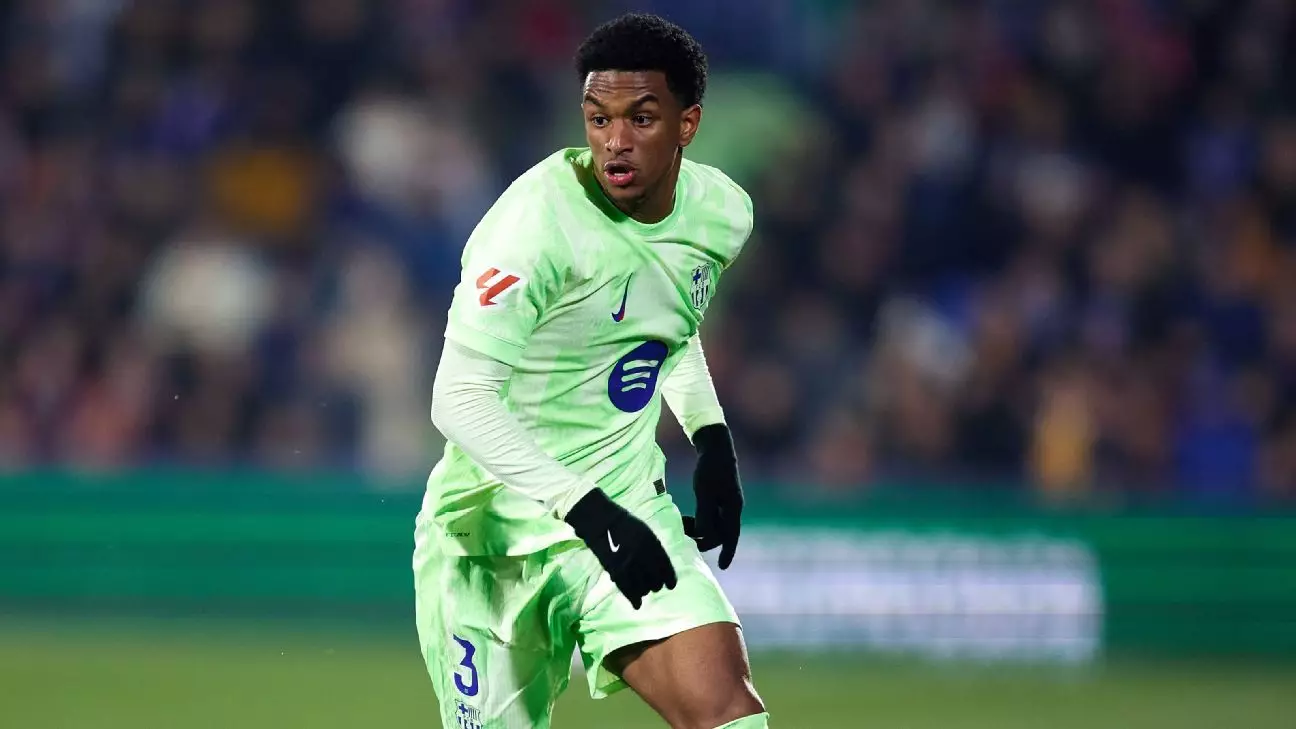The recent encounter between FC Barcelona and Getafe, which ended in a 1-1 draw, reignited discussions about racism in Spanish football after Barcelona defender Alejandro Balde reported being subjected to racial abuse by a section of Getafe supporters. Balde, who is Black, disclosed the incidents occurred during the first half of the match, drawing attention to the persistent issue of racism that undermines the spirit of the game. This particular incident not only affected Balde personally but also served as a reminder that despite ongoing efforts, racism continues to rear its ugly head in stadiums across Spain.
In his post-match interview, Balde voiced his dismay at the incident, stating, “I received several racist insults from the fans here. It’s lamentable and something that should not keep happening.” His remarks encapsulated the frustration felt by many players who have encountered similar experiences on the field. The defender informed the match referee, Pablo González Fuertes, of the abuse, which prompted the activation of LaLiga’s anti-racism protocol—a procedural response designed to address such instances.
LaLiga has established a comprehensive protocol that empowers referees to halt matches if racist incidents are reported or observed. When triggered, the protocol entails a stadium announcement that explicates the rationale for pausing the game and warns that persistent racist behaviors could lead to players leaving the pitch. If the abuse continues after the resumption, the game may face abandonment. This framework aims to deter racism directly from emerging within the game; however, the effectiveness and implementation of these protocols remain subjects of debate.
Balde’s case serves as a critical test of this system. While the protocol was activated, there are lingering questions about the follow-through and outcomes of such incidents. As Balde stated, “I don’t know exactly how it works from there,” indicating a lack of clarity and possibly a gap between intent and action. Furthermore, the efficacy of the league’s measures hinges on consistent enforcement, rather than sporadic application tied to high-profile incidents.
The ramifications of this incident are not isolated to one match or one player; they resonate throughout the entirety of Spanish football. Balde’s experience was compounded by an earlier occurrence that same day when Elche defender Bambo Diaby also faced racial abuse during a match against Sporting Gijón. Elche’s swift identification of an alleged perpetrator by local authorities highlights the increasing vigilance against hate crimes within the sport. LaLiga’s commitment to bringing such incidents to the public eye—by reporting hate crimes to prosecutors—illustrates a deeper recognition of the issue and its broader societal implications.
Barcelona’s head coach, Hansi Flick, added his voice to the outcry against racism, emphasizing, “There is no space for this in football or in life.” His perspective underscores the collective responsibility shared by players, fans, and clubs alike to challenge and eradicate such abhorrent behavior from the stands. Flick’s call for action extends beyond punitive measures; it advocates for a community effort to foster respect and inclusion within the sporting environment.
While the movement against racism in Spanish football has made some strides—evidenced by legal actions taken against offenders in notable cases such as that of Real Madrid’s Vinícius Júnior—the frequency of these incidents begs the question of whether enough is being done. Given the social media landscape and the anonymity it can afford some individuals, club officials must pursue proactive strategies that encompass education, awareness programs, and open discussions about the implications of racism in sport and society.
Balde’s experience serves as a powerful reminder that the fight against racism in football requires sustained effort and collaboration across all levels of the sport. It calls for players, clubs, and governing bodies to remain vigilant and collectively address the root causes of bigotry, fostering an inclusive environment where all individuals can thrive, irrespective of their race or background.
Addressing racism in football is not merely a procedural obligation; it is a moral imperative that demands unwavering commitment from the football community. The dialogue surrounding these incidents must evolve into a robust action plan to root out racism once and for all, ensuring the sport can be enjoyed by everyone without fear of discrimination.

